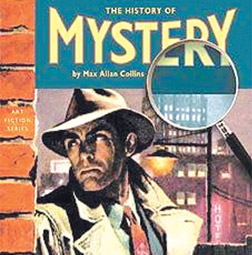Pleasures of learning literature
K S SIVAKUMARAN

Literature - not beyond your comprehension |
 |
| Enjoying a
novel at bed time |
We enjoy literature, at least most, but quite a few don’t because it
is hard and archaic, some declare. It may be due to the prejudices and
the wrong way they have studied the subject. Here are some ways – some
methods- to study, understand and evaluate literature. These are meant
for teenagers of this page.
Most students disregard the instructions in the examination paper. If
there are two parts in a question, they conveniently disregard the
second part of the question because of their failure to read the
question in full.
If they are asked to critically write an appreciation or examine a
text, they write pages and pages narrating the story without giving how
they evaluated the book.
Some do not understand the question even if they are structured
clearly, because they failed to understand the specific literary terms.
These are some observations in marking exam papers in school. Please
therefore take these suggestions seriously for better performance in the
forthcoming examinations.
If asked ‘What the book is about?’ it means not what the story is
about, but the ideas it expresses. As we know authors have a purpose in
writing on a particular theme depending on his outlook on life. In most
fiction authors clearly state their point of view. They convey their
idea through a character’s thoughts or conversation. But such themes
will emerge only gradually. That’s why we should read the book
thoroughly and even re-read it several times to understand the theme of
the book we are reading.
Let us talk about the characters in novels. The novelist creates his
or her characters and the reader interprets the characters in his or her
own ways. What the character thinks, says, does and the circumstances of
the character’s life – all indicate what the novel is about. How the
reader contributes to the enjoyment of the novel is by the reader’s
understanding and interpretation of the text.
|

A detective novel |
The appearance of a character, how he or she speaks, what spoken, the
action, the surroundings, the thinking, relationships all determine the
creation of a character.
Depending on the importance of re character details of a character.
Physical appearance of a character can be directly used to show the
personality of the character.
Sometimes there is a contrast between the appearance and personality
of a character. For instance Wickham’s appearance and his mannerism in
Pride and Prejudice might have made an impression on Elizabeth at first,
but his real self is revealed only later. Even how a character dresses
would also show his or her personality.
The novelist creates a mental picture of the characters in the minds
of the reader. In real life we learn various things about people and
events in a jumbled manner- not chronologically. But in a novel the
writer chooses deliberately what we should know and not everything about
the character he or she has created.
We must also examine the plot in a novel. Apart from the theme and
the characterization, we must see how the story concerned develops
through the sequence of events in the story.
The unfolding of a situation is also an ingredient of a creative
work.
Critics have discovered the following would keep our interest in
reading further:
The development of relationships between characters, romance, family,
social relationships. Many novels include all these types. We must think
about how relationships change from chapter to chapter in the novels we
are reading. You would note for instance how the relationship between
Darcy and Elizabeth changes at the end of the novel, Pride and
Prejudice.
The solving of a problem or a mystery – the detective novel is a
popular form which uses this method. Other novels may incorporate less
obvious mysteries as one part of the plot.
The development and resolution of a conflict between characters or
groups – This may range from war between countries, through gang war,
ethnic war, down to rivalry between individuals. The conflict does not
have to be physical. The popularity of fights and trial scenes in
literature shows how potent the idea of conflict is.
*The overcoming of some difficulty or disaster, as in many adventure
novels is another way of structuring a plot.
*A search or discovery, whether it is a search for lost empires, the
discovery of penicillin, or some kind of more personal inner quest.
Most novels include many of these features at different points of the
story. Plots arouse our interest in the story. Plots develop slowly in
most novels, but in a thriller it would be the other way. Plots
contribute to the order of the story leading to the finale’
Among the pleasures we derive reading literature is stimulation to
read more, understand how and why problems in the story are resolved,
study the inner and outer life of characters and learn the experiences
they have had, learning new words and the styles of expressions by
different writers and so on. Grammar and use of language emerges from
good literature.
[email protected]
|



